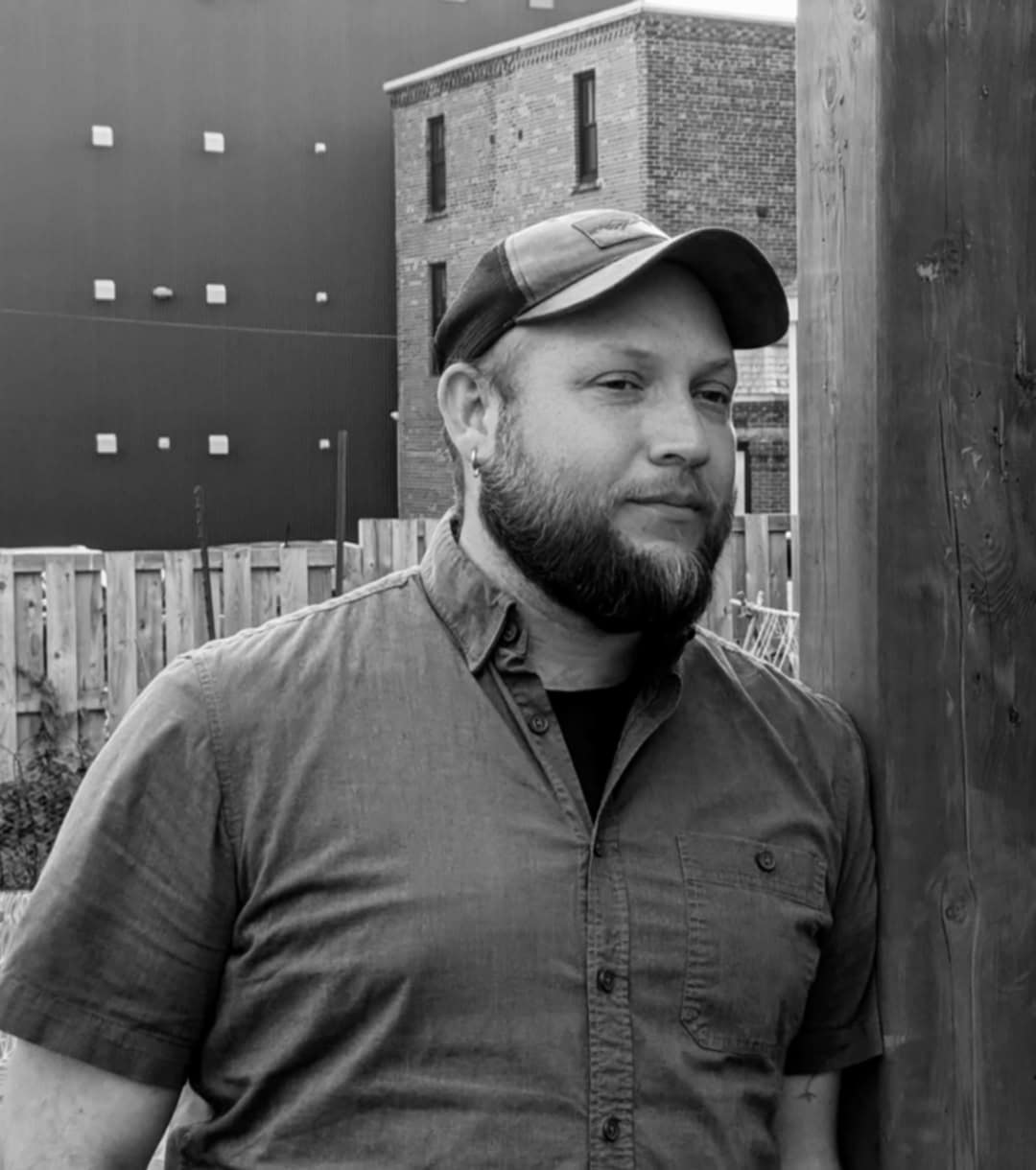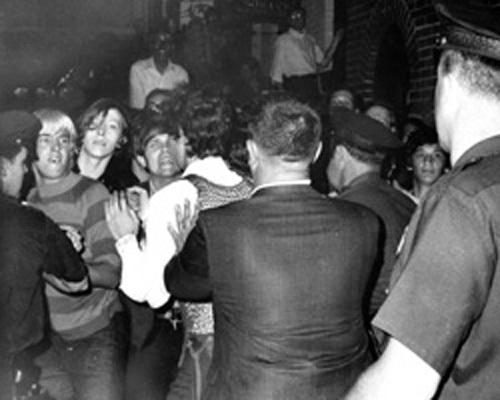
Pride is here. The flags are up, the music is loud, and our communities — bruised but beautiful — are gathering again across the Atlantic to dance, march, hold hands, and be seen.
June 28th marks the anniversary of the Stonewall Riots — a moment of defiance led by Black and Brown trans women, sex workers, and queer street kids who were tired of police brutality and tired of being told to wait their turn for dignity. That uprising wasn’t clean, comfortable, or coordinated — it was messy, angry, and deeply necessary. It was also about something bigger than individual personalities: it was about survival, about community, and about demanding better.
Audre Lorde captured this urgency when she wrote, “Without community, there is no liberation.” Stonewall wasn’t just about defying cops — it was about envisioning a queer future rooted in mutual care and collective strength.
This piece was written in that same spirit — not to call out any one person, but to call all of us into a deeper conversation. It’s a reflection on the harm we do to each other in queer spaces, often unintentionally, often out of pain — and how that harm is holding us back from what we could become. If Stonewall taught us anything, it’s that we fight back not just against police, but against every force — external or internal — that tries to keep us from liberation.
How did a riot become a routine and a movement become a minefield?
Because yes, we celebrate. But many of us are also tired. Frightened. Grieving. Queer and trans folks are being targeted again — in legislatures, in classrooms, in bathrooms, and in our very homes. And those of us working in community know -- the fight never really stopped. It just changed shape. But the truth that feels harder to name is this: some of the worst damage is being done from inside the house.
There are people in our community whose activism begins and ends with performative rage — people who cloak ego in “accountability,” and personal vendettas in community language. They don’t build. They tear down. They swarm in comment sections, forums, and call-out posts on Reddit — not to protect the community, but to center themselves.
Whether they realize it or not, they are doing the work of the oppressors. They are proof that those tactics of division and distrust are working. Because every time we let unresolved trauma drive us to try and destroy one another — every time we reduce complex people to a single story, or a misstep, or a moment we misunderstood — we echo the story they’ve written for us, one where we can’t be trusted with our own power.
Let’s be honest.
This isn’t accountability. This is sabotage.
And it’s costing us everything.
We see this every time someone runs for a board position just to point fingers, then resigns the moment they’re asked to help with solutions. We see it when queer leaders are dragged and discarded by the very people they’ve fought to support. We see it when people refuse to have conversations offline — when they’d rather perform outrage publicly than resolve harm in community. There’s a difference between using anger as a tool — and turning it into a weapon.
This is a radical invitation to stop acting like we alone hold truth or ownership of someone else’s downfall.
Audre Lorde understood the nuance of rage: “Pain is important: how we evade it, how we succumb to it, how we deal with it, how we transcend it.” She also wrote, “Anger, used rightly, is a powerful source of energy.” Pain and anger are unavoidable — but they become destructive when we weaponize them against our own.
We need to say it plainly: people who tear down their own for clout or ego are more dangerous to our movement than many of the outside threats we face. When anonymous Reddit attacks and vicious rumors spread, it’s not resistance — it’s sabotage. And it fuels whiteness’s deadly logic: white saviourism, purity policing, and cancel culture dressed up as the moral high ground.
As Thich Nhat Hanh wrote in How to Fight:
“Very often in a conflict, we believe the problem is the other person or group... but looking deeply… we know that we are not the only ones who have suffered. When we take time to calm ourselves down and look deeply into the situation, we can see that we are co-responsible… we have co-created the conflict.”
This is a radical invitation to stop acting like we alone hold truth or ownership of someone else’s downfall.
Our community is young. Not because we just arrived — we’ve always been here — but because so many of our elders didn’t get the chance to stay. We lost entire generations to the AIDS epidemic, to violence, to suicide, to systems that erased them before they ever got the chance to rest — and to closets that locked from the outside. And the ones who survived? Too often overlooked. Too often left carrying more grief than one heart should bear.
When a community doesn’t get to grow old together, something essential is stolen. We lose stories. We lose mentorship. We lose models of queer love that weren’t shaped in the shadow of trauma. We forget what it means to be held — not by systems, but by each other.
And so we raised ourselves, often in isolation. We turned survival into an art form — but one that sometimes left us brittle. Quick to defend. Quick to divide. We confuse performance with belonging. And when things get hard, we sometimes turn inward and lash out at the only people who might understand us — each other.
 We’re still reaching for what was fought for at Stonewall — safety, dignity, the freedom to live without begging for it. But somewhere along the way, some of that fight started turning inward. Not because we’re cruel, but because the world taught us to survive by shrinking each other. We were raised in systems that made everything feel scarce — love, safety, power — and many of us started to believe it. Started to believe that if someone else was rising, it meant we were being left behind. Started to believe that harm could be healed by humiliation. That justice could be found in the wreckage of someone else’s reputation.
We’re still reaching for what was fought for at Stonewall — safety, dignity, the freedom to live without begging for it. But somewhere along the way, some of that fight started turning inward. Not because we’re cruel, but because the world taught us to survive by shrinking each other. We were raised in systems that made everything feel scarce — love, safety, power — and many of us started to believe it. Started to believe that if someone else was rising, it meant we were being left behind. Started to believe that harm could be healed by humiliation. That justice could be found in the wreckage of someone else’s reputation.
That kind of thinking isn’t ours. It was handed to us by the same systems we’re trying to dismantle. That’s the logic of colonialism. Of whiteness. Of cisheteronormativity. These systems survive by convincing us we’re threats to each other. They thrive when we mistake division for accountability, and competition for community.
And what if we stopped pretending we aren’t hurt?
But that story isn’t ours.
It was forced on us.
And we don’t have to carry it anymore.
What would it look like to break that pattern?
What if we stopped confusing criticism with care, and popularity with purpose?
What if we stopped pretending that tearing someone apart on the internet is a form of justice?
What if, instead of trying to win the moral high ground, we got back to building actual ground to stand on?
And what if we stopped pretending we aren’t hurt?
Stillness is essential. As Thich Nhat Hanh noted, “Stillness is the foundation of understanding and insight.” What if we paused before publishing? What if we reflected before shutting someone out?
So many of us are carrying trauma — personal, generational, systemic. It shows up in our bodies, in our relationships, in our organizing. And we’ve gotten good at pretending we’re fine. At pushing through. At being “the strong one.” But strength without healing is just survival on repeat. What if we could name our wounds, without shame? What if saying “I’m struggling” became an act of trust instead of weakness?
Thich Nhat Hanh wrote, “Part of acknowledging suffering is acknowledging we need help. It is much easier to practice compassion if you have the energy and support of a community.” Self-reliance isn’t a badge — it’s a burden. Let’s choose partnership instead.
We can tell different stories — ones of queer joy, mutual aid, interdependence, creativity, sex, softness, and beautiful weirdness.
We can move with radical empathy — in how we hold each other accountable, in how we listen, in how we stay.
We can remind each other, quietly and often: you’re not alone. You don’t have to earn your place here. You belong.
And to those who are here only to take, to shout, to sabotage — know this:
You’re not radical. You’re not brave. You’re just loud.
And loud isn’t leadership.
Rosemary Brown’s vision guides us here: “We must open the doors and we must see to it they remain open, so that others can pass through.” Let’s be those people.
We didn’t get the world we deserved. But we still have time to build something worthy of our love — something Marsha and Sylvia would recognize as home. Marsha P. Johnson declared, “No pride for some of us without liberation for all of us.”
So as Pride rolls out — as the floats glide by, and the drag queens take the stage — I hope you take a breath. I hope you look around at the faces beside you, the ones holding your place in the crowd, and remember:
These are your people. Flawed, brilliant, hurting, healing...
— and worth everything.
Photo: Stonewall resistors, one of the few known pictures from the first night of the rebellion, is credited to Joseph Ambrosini in the New York Daily News on Sunday, June 29, 1969. The story read: Police have been keeping an eye on the Stonewall Inn at 55 Christopher St. for some time. They had been told to explore the possibility of 'local syndicate involvements.' Last week, they raided the Greenwich Village place, tabbed a homosexual handout and said they gathered evidence of illegal sale of alcohol. That raid went off without a hitch. At 2 a.m. yesterday, in a second raid, the picture was different. At least three policemen suffered minor injuries from an irate crowd, the front of the place was set afire and 13 persons were arrested. Peace was restored about 4 a.m. The caption reads, "Crowd attempts to impede police arrests outside the Stonewall Inn, Christopher Street."

